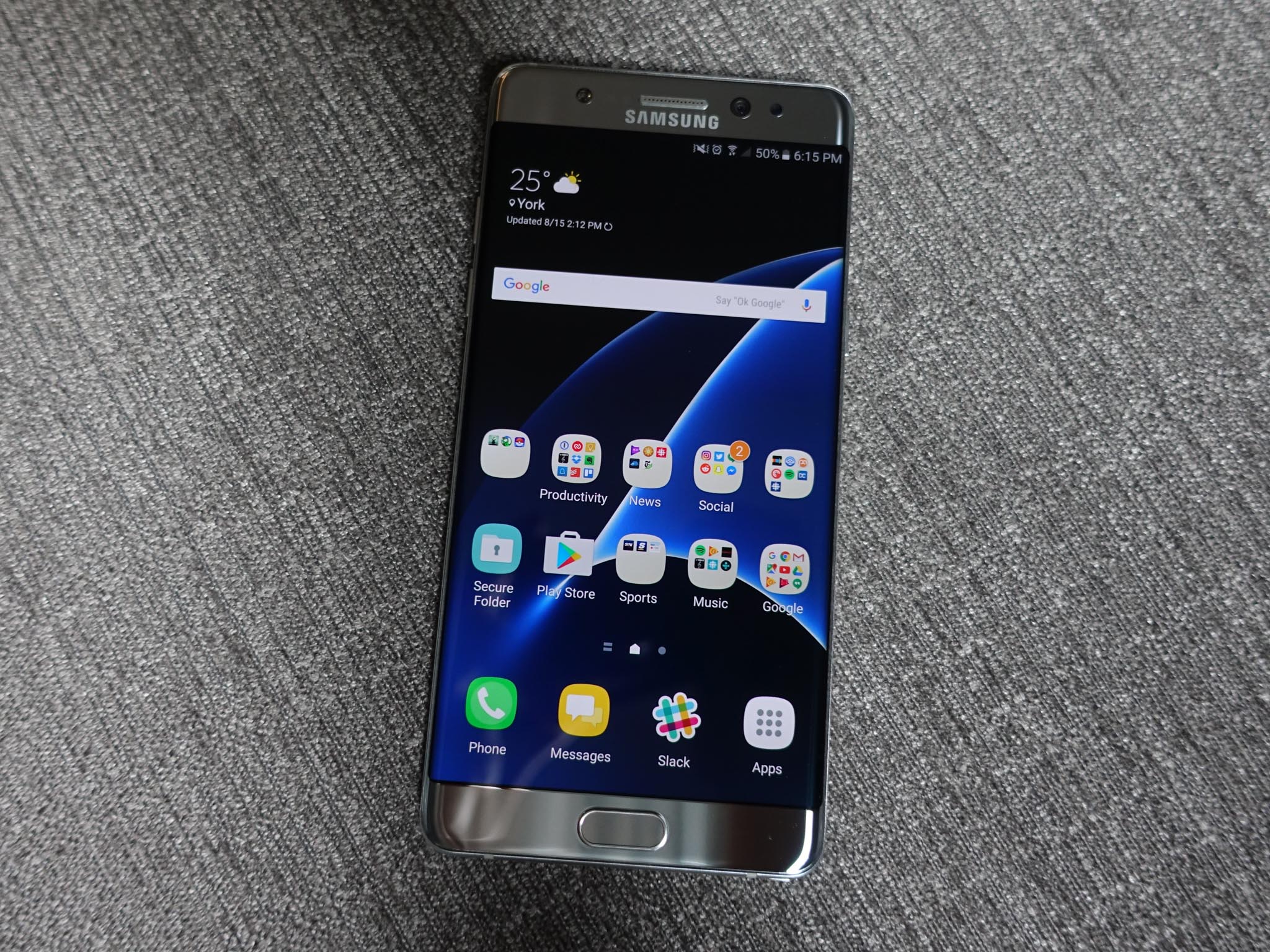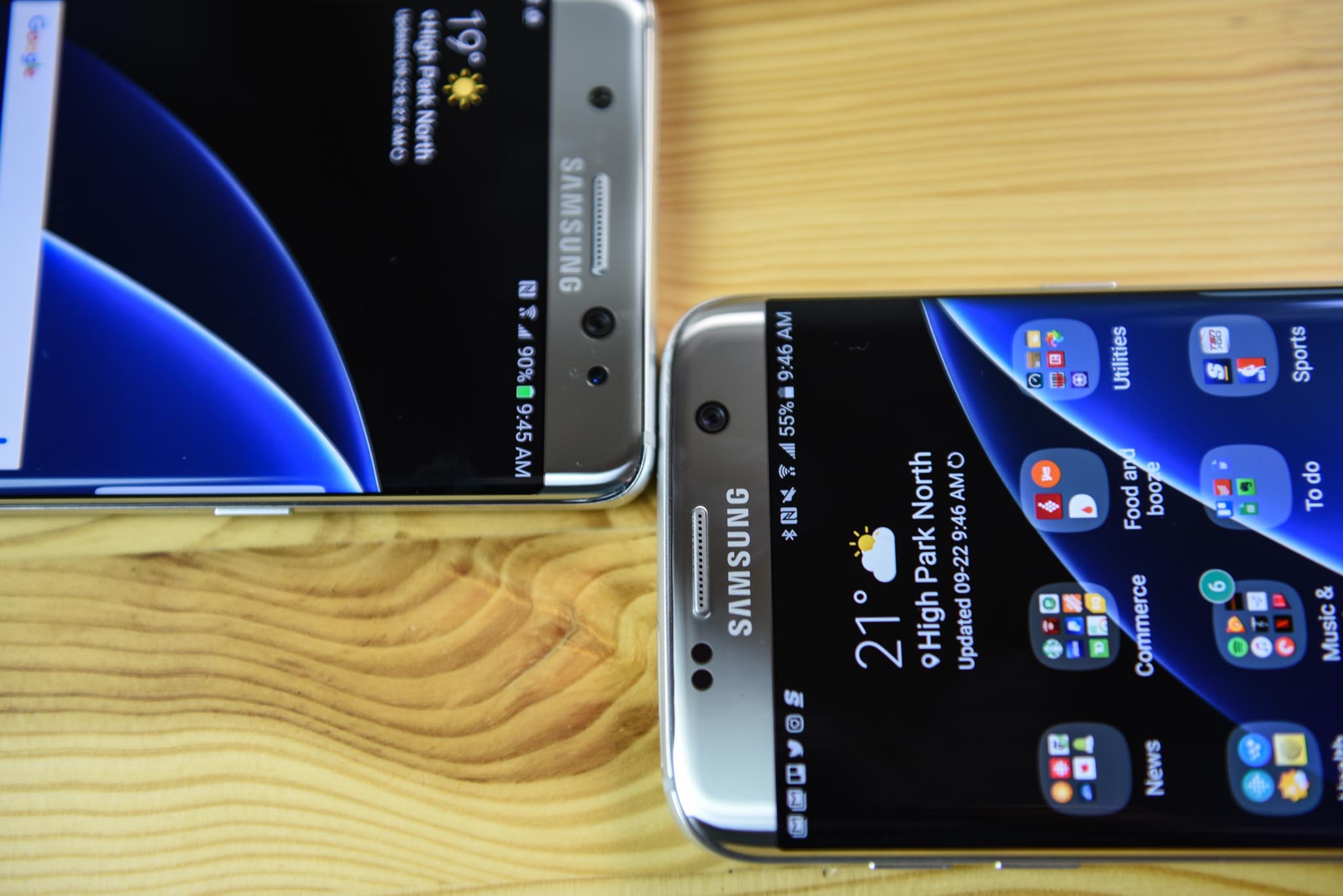Should Samsung give up on the Note brand entirely?
There's no question that the beleaguered Galaxy Note 7 is having a hard week, after a hard month. Things were looking up for the Korean giant after the recall was deemed a success, a huge undertaking from around the world that attempted to corral over two million handsets. But then an AT&T-branded Note 7 caught fire on a still-grounded Southwest flight after being powered off and things went to hell again very quickly.
The response
In the immediate aftermath, Samsung issued what was perhaps the most tone-deaf response possible, saying that it wasn't obvious the phone was a Note 7, nor that the battery was the cause. Obviously, the company was and is looking into the root cause, and was merely hedging against an outcome — that this replacement, "good battery" Note 7 wasn't suffering from the same issues as its distressed early-production counterparts.
Should we find ourselves in a situation where a number of new Note 7s are spontaneously combusting, we'll have no choice but to retract our recommendation.
Here at Android Central, we've taken the cautious route: We want to believe that when Samsung says it has things under control, it really does. As a result, while we all but stopped publishing peripheral Note 7 content during the recall, we began ramping up again as the situation returned to a semblance of control. But since the most recent incident, another Note 7 reportedly exploded in Taiwan, and in the coming days AT&T is expected to pull support for the device entirely.
The AC editors have discussed this internally over the past day or so. And we've decided that unless the ongoing investigation can prove conclusively that there's no danger from the new, replacement Note 7s, we'll be forced to withdraw our recommendation in the near future. We're not there yet, but if you're on the fence about a Note 7 purchase, maybe wait a few days and see how this pans out.
That may be inconvenient for us — the Note 7, battery problems aside, earned our most vociferous approval — but it would be devastating for Samsung, whose trust vector with consumers has already abated and may be about to expire. That is also being compounded by an increasing willingness by carriers to (thankfully) take the sides of the customers and allow them to return their Note 7s for, well, literally any other phone they sell.
Somewhere between then and now, between the Note 7s exploding and the Note 7s exploding again, trust in not just the product itself but the company as a whole began to wane. I've been witness to casual conversations wherein regular phone-buying customers have expressed reticence to buy another Samsung phone again, period; many of them claim to be moving in the direction of the iPhone 7 Plus, which came out in mid-September and is roughly the same price. Apple will surely benefit from this fallout, but it of course won't be a one-to-one lateral movement; many Note buyers, existing or potential, will find other Android devices to buy, or — best case scenario — stick with a Samsung Galaxy S7.
But it's safe to say that the Note line is practically finished, and that the repercussions of this debacle will have far-reaching effects across the industry. You'll likely see improved controls around battery production, and greater emphasis put on the safe transportation of those batteries from nearly every company that buys Lithium-Ion cells in bulk. Samsung will lose money, yes, but it will also likely slow the speed of hardware production, perhaps culling the twice-yearly release schedule it established in 2011 with the release of the original Note.
The bigger question for Samsung now is what happens to the Galaxy S8, which is presumably just over four months from its debut. Not only does the company need to do an extensive audit of its battery suppliers (which is surely already in progress), but it has exactly that period to reassure every potential upgrader and new customer alike that it is working to ensure the most important computer in their lives is not going to be considered a dangerous good. We don't know exact numbers, but between them the Galaxy S7 and S7 edge sold nearly 30 million units worldwide; that number may be cut in half if Samsung can't win back the trust of its customer base.
The damage is done, a chemical burn searing three feet of carpet in an aisle seat of a Southwest flight, with no hope of repair.
The problem is compounded by the fact that most people buy their phones from carriers. In the U.S., carriers have been quite clear in their positions of helping customers replace phones they suspect are dangerous, but it's the salespeople who, a few months from now, will be put in the position of answering questions about battery safety, likely taking the path of least resistance. Even if the fire incident on a Southwest flight turns out to be an isolated incident in the U.S. — and I hope it is — reps at the store level and over the phone have almost certainly been instructed to avoid lingering on the Note 7 and instead push customers towards another brand.
What's next
Circling around, without declaring it dead, the Galaxy Note brand is now damaged beyond repair, done in as much by the company's callous response to the initial claims of explosions as its follow-up earlier this week. Samsung is a big company, with a lot of moving parts, and it's difficult to speak as a single entity. But now is the time it needs to unify under a single conceit: We made a bunch of mistakes, and we're learning from them. If you want your money back, you can get it. If you want another phone, you can have one. But we're not going to rest until every Note 7 customer is happy.
After that, Samsung needs to shut down the brand and move on. The damage is done, a chemical burn searing three feet of carpet in an aisle seat of a Southwest flight, with no hope of return.


